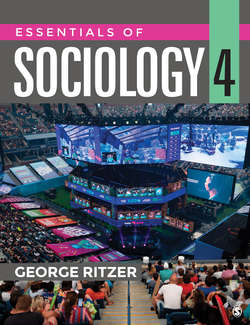Читать книгу Essentials of Sociology - George Ritzer - Страница 64
На сайте Литреса книга снята с продажи.
Exchange Theory
ОглавлениеLike ethnomethodologists, exchange theorists are not concerned with what goes on in people’s minds and how that affects behavior. Instead, they are interested in the behavior itself and the rewards and costs associated with it (Molm, Whithama, and Melameda 2012). The key figure in exchange theory, George Homans (1910–1989), argued that instead of studying large-scale structures, sociologists should study the “elementary forms of social life” (Homans 1961, 13).
Exchange theorists are particularly interested in social behavior that usually involves two or more people and a variety of tangible and intangible exchanges. For example, you can reward someone who does you a favor with a tangible gift or with more intangible words of praise. Those exchanges are not always rewarding; they also can be punitive. You could, for example, punish someone who wrongs you by slapping him or complaining about him to mutual acquaintances.
While exchange theory retains an interest in the elementary forms of social behavior, over the years it has grown more concerned with how those forms lead to more complex social situations. That is, individual exchanges can become stable over time and develop into persistent exchange relationships. One particular type of exchange relationship is “hooking up,” or forming sexual relationships that are also sometimes called “friends with benefits.” For example, because you and another person find your initial sexual interactions rewarding, you may develop a pattern of repeat interactions (also known as “hookups” or “booty calls”). Exchange relationships, including hookups, rarely develop in isolation from other exchange relationships. Sociologists study how hooking up is not an isolated occurrence—it happens within the context of college campuses, for example, where it has been normalized (Kuperberg and Padgett 2015).
